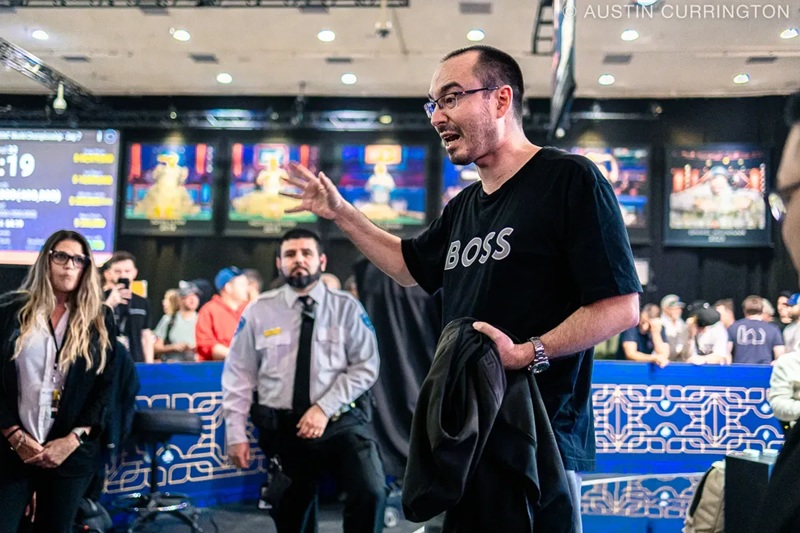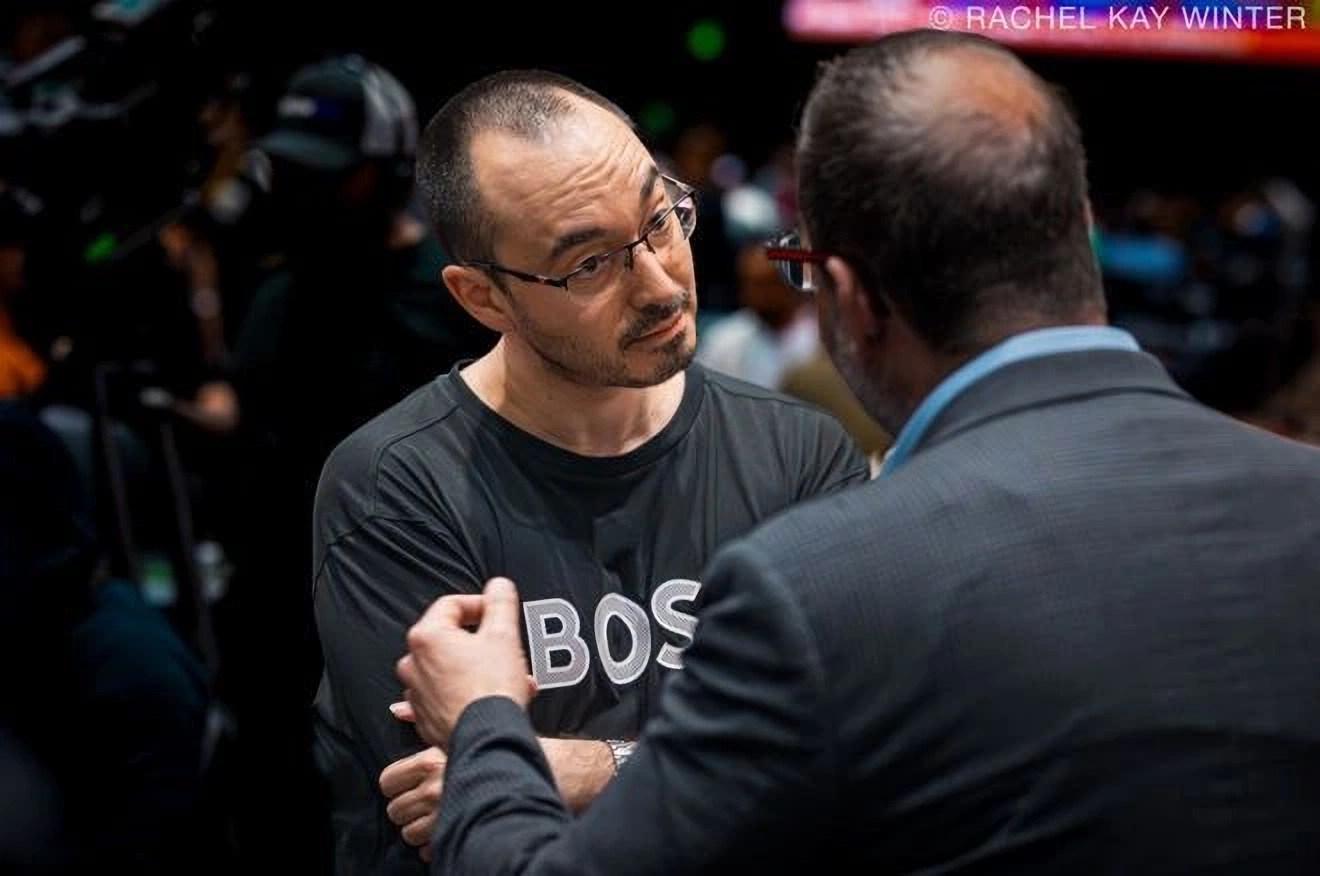
He didn’t cheat, he didn’t insult anyone, and yet William Kassouf found himself at the center of a unique debate: can a player be excluded simply for being… unbearable?
A situation beyond the written rules, calling for a gentlemen’s agreement

What William Kassouf brought to the tables had little to do with verbal strategy. He wasn’t playing poker anymore—he was dominating the space. He drained every second of thinking time to create a suffocating atmosphere. Every hand turned into a scene of verbal harassment, every decision a slow psychological grind.
He didn’t cheat. He didn’t touch other players’ cards. But he poisoned the atmosphere, deliberately slowed down the game, and asserted his presence through relentless chatter. It was no longer gameplay—it was calculated disruption.
In response, WSOP organizers acted with composure and discipline. They began by observing, then intervened with structure: verbal warnings, time penalties, formal reprimands. Disqualification was even considered. And they did it all without losing control.
They didn’t let themselves be intimidated. They didn’t create a tailor-made rule. They simply enforced the existing arsenal: Rule 119 to sanction excessive speech; Rule 41, allowing exclusion for disruptive behavior; and above all, Rule 51, granting tournament staff the authority to act in the best interests of the game.
Because that was the real issue: protecting the integrity of poker. Making sure the game remained a battle of minds, not a war of nerves orchestrated by one man. Kassouf, by slowing down the action and flooding the table with provocative words, wasn’t being tactical—he was creating chaos.
At his table, the pace of hands was cut in half. Players lost focus, dealers lost momentum, the audience lost interest. Silence—so essential to poker—was drowned in noise. The discomfort was real. And it lingered.
Fortunately, the WSOP and its organizers did not remain silent
As they had done in the past—with Jamie Gold’s leaks, Hevad Khan’s celebrations, or even personal hygiene issues—they took action when needed. No drama. No “Kassouf Rule.” Just calm, clear enforcement.
The most insidious part of the Kassouf case was how he always walked the line. He didn’t break rules, but he bent them until they nearly snapped. He wasn’t a rule-breaker—he was a toxic presence. And poker, even when it values psychological play, cannot allow it to become a tool of destruction.
By taking action as they did, the WSOP sent a strong message: speech may be part of the game, but it is not above the game. When it turns into intimidation, distraction, or disruption, it loses its legitimacy—and demands a response.
A new “Kassouf Rule” wasn’t necessary. The rules already existed. They simply had to be enforced. And they were—firmly, but fairly.
What Kassouf revealed was not a flaw in the rulebook—it was a flaw in the culture of the game. One that sometimes confuses freedom with impunity. By shutting the door on such behavior, the WSOP reminded everyone that poker—even under pressure—is a game built on respect.
And no voice, no matter how loud, has the right to drown out all the others.
(Photo credit: PokerNews)